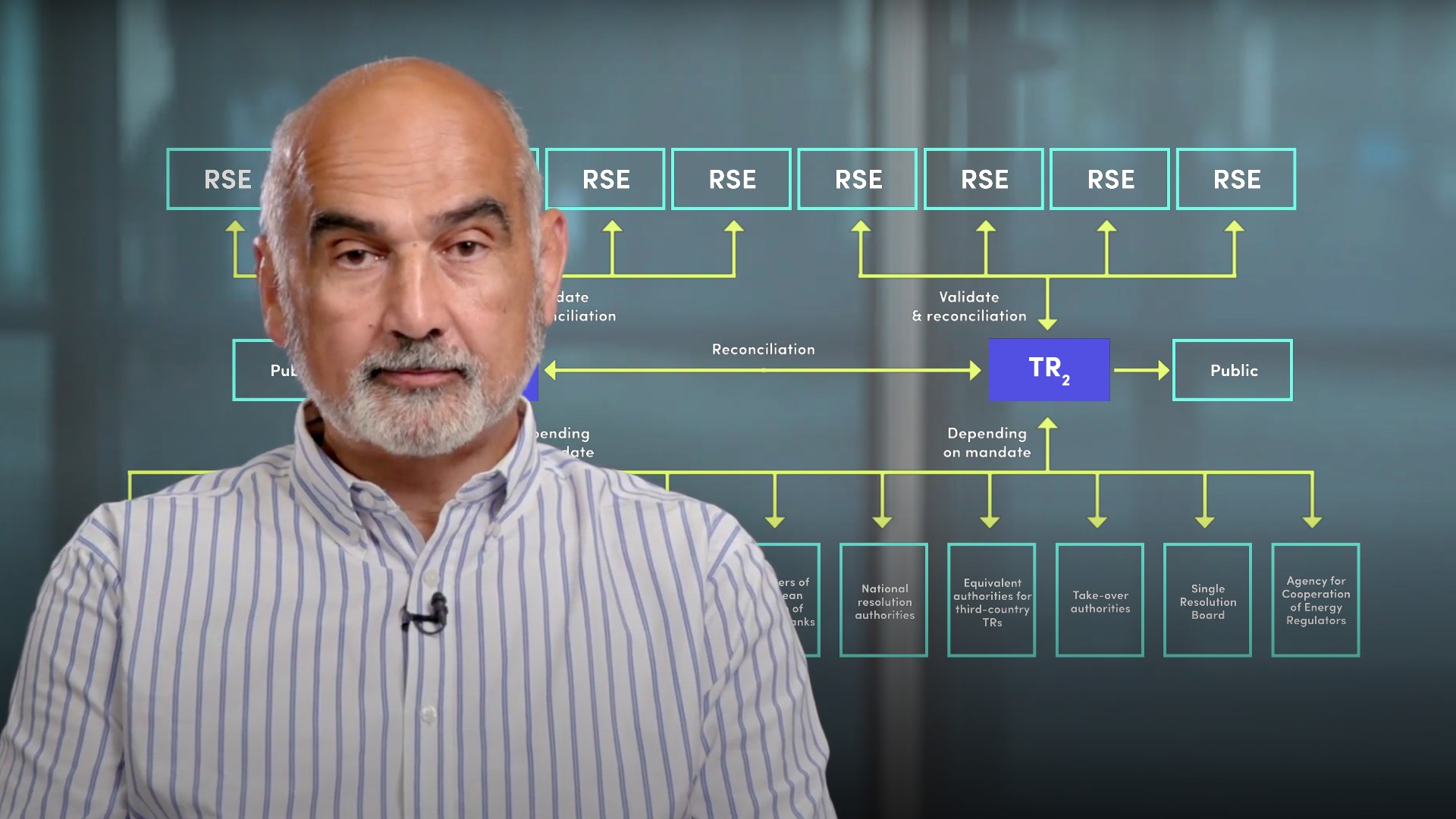
To Whom are Reports Sent?

Richard Comotto
30 years: Money markets
It can be seen that trade repositories are central to the implementation of SFTR. Here, Richard talks all about the entity to whom you have to send your reports, the trade repositories and the functions it performs.
It can be seen that trade repositories are central to the implementation of SFTR. Here, Richard talks all about the entity to whom you have to send your reports, the trade repositories and the functions it performs.
Subscribe to watch
Access this and all of the content on our platform by signing up for a 7-day free trial.

To Whom are Reports Sent?
14 mins 27 secs
Key learning objectives:
Identify the reasons that you will be given for rejections and other breaks
Understand the role of trade repositories in the SFTR workflow
Outline the information that the repositories will provide back to reporting parties on rejected and unreconciled reports
Overview:
SFTR is a major regulatory reporting requirement for anyone transacting repo and other securities financing transactions in the EU, no matter how limited their activity. The reporting requirements cover all aspects of these transactions, including life-cycle events and re-use of collateral, and are therefore complex. In order to meet the regulator’s demand for complete, accurate and timely data, firms are devoting considerable resources to the speedy remediation of rejected or unreconciled reports. It is likely that, at least initially, a high percentage of reports will be rejected or be qualified as incomplete or inaccurate, primarily due to poor drafting of the regulation and accompanying material. This course provides a systematic and detailed insight into reporting repos under SFTR that uniquely incorporates the results of the work by the industry (the ICMA SFTR Task Force) on interpreting the regulatory requirements, filling in the gaps and dealing with the contradictions and mistakes.
Subscribe to watch
Access this and all of the content on our platform by signing up for a 7-day free trial.

Richard Comotto
There are no available Videos from "Richard Comotto"



























